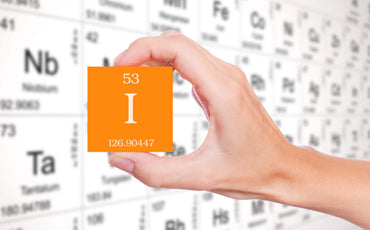The adrenal glands are a pair of anatomically complex organs with essential roles in the endocrine system of the human body. Primarily, they produce a host of hormones that are needed for the optimal functioning of the body system. Adrenal problems impair the normal functions of these organs. These problems include Cushing’s syndrome, hyperaldosteronism, pheochromocytoma, congenital adrenal hyperplasia, and adrenal cancer. TriFixx™ Adrenal Fixx™ is a non-prescription nutraceutical developed to fix the adrenal problems in an integrative approach, devoid of the common shortcomings of conventional therapy methods.
INTRODUCTION: Adrenal Glands
In all normal humans, the adrenal glands are organs of unique medical interest. With a heterogeneous structure and complex innervation, the medical interest in these organs spans far beyond curiosity. Numerous medical inquiries have been conducted to ascertain the important physiological roles of the adrenal organs in humans and the interplay between the adrenal hormones and other organs. These studies are necessary for the evaluation of proper adrenal functioning and to understand the management of adrenal diseases in humans.
The adrenal glands are a pair of triangular-shaped glands located right atop the kidneys. With a width of about 2 inches long, each gland is made of two distinct tissue regions. The outermost region is the adrenal cortex, while the innermost region is the adrenal medulla. The adrenal medulla is the centre for the production of the stress hormones – epinephrine and norepinephrine. The cortex has a complex structural outline composed of three anatomically different layers: the outer zona glomerulosa, the central zona fasciculate, and the inner zona reticularis. The zona glomerulosa is the primary region for the production of mineralocorticoids – a class of corticosteroid hormones that increases sodium reabsorption and regulates the salt-water balance in humans. The zona fasciculate, in turn, produces the body’s supply of glucocorticoids – a class of corticosteroid hormones with important biological roles in inflammation and autoimmune process. The zona reticularis secretes androgens, cortisol, and corticosterone. These hormones are important for the basic roles of the adrenal glands.
In cases when the secretion of the adrenal hormones is affected, or an infection alters the structure of the adrenal glands by cellular destruction; adrenal medical problems arise. The mortality rate of adrenal medical problems is low; however, early diagnosis and expert medical care are needed to improve the prognosis of these conditions.

Review Of Adrenal Problems
- Cushing's Syndrome
In humans, cortisol is a steroid hormone produced by the adrenal cortex and distributed to target organs where it affects a biological function. Increased exposure to cortisol causes Cushing’s syndrome. Prolonged use of synthetic glucocorticoids is the most common cause of increased levels of cortisol in the bloodstream. An uncontrolled production of cortisol by the adrenal gland can also cause Cushing’s syndrome. Sometimes excessive production of cortisol by the adrenal gland can be dependent on the production of the adrenocorticotropic hormone – a pituitary hormone responsible for the regulation of cortisol production. A 24-hour saliva cortisol test might be needed to make a definitive diagnosis of Cushing’s syndrome.
The symptoms which present in Cushing’s syndrome may include: bone pains, irregular menstrual cycle in females, erectile dysfunction in males, generalized body weakness, persistent fatigue, infertility, and visual disturbances. In a severe case of the condition, patients can also show classic signs of cognitive impairment and depression.
- Congenital Adrenal Hyperplasia
Congenital Adrenal Hyperplasia (CAH) is an autosomal recessive disorder that disrupts the normal cycle of steroid synthesis by the adrenal glands and impairs the synthesis of cortisol. CAH is an inborn biological error of the endocrine system and can sometimes require hormone replacement therapy. The level of cortisol is reduced while aldosterone is produced in excess. As expected, the biological roles of cortisol are significantly affected by the body. If left untreated, CAH can develop to a devastating form of adrenal insufficiency over time. The symptoms experienced by patients suffering from CAH, are dependent on the particular hormone that is affected as the condition progresses. These symptoms include: vomiting, dehydration, shock, ambiguous genitalia, menstrual irregularities, hyperpigmentation, and poor cognitive development.
- Hyperaldosteronism
In hyperaldosteronism, the adrenal gland produces excess aldosterone beyond the normal threshold. In most cases, the symptoms noticed are similar to the mild sustained increase in blood pressure and can make early diagnosis difficult, for they can be easily confused with essential hypertension. In secondary hyperaldosteronism, there is an undue activation of the renin-angiotensin-aldosterone system (RAAS) – a hormone system that maintains arterial blood pressure, extracellular volume, and plasma sodium concentration. An endocrine tumour, cirrhosis, narrowing of the renal arteries, and disease conditions of the heart, are different factors that activate this system. However, in primary hyperaldosteronism, the zona glomerulosa is more specifically affected as it produces excess aldosterone. Some patients can present with no symptoms at all. In symptomatic patients, the symptom range includes: fatigue, polyuria, headache, numbness, spasms, and muscle weakness.
- Pheochromocytoma
Chromaffin cells of the adrenal medulla can become benign tumours that consistently produce catecholamine. This condition is referred to as pheochromocytoma. The causes of this condition remain unclear; however, there is evidence of hereditary connections. In relation to adrenal health, norepinephrine and epinephrine are the catecholamines produced in excess. These hormones are released in excess into the bloodstream. The classic symptoms noticed in patients suffering from this condition include: uncontrolled high blood pressure, increased heartbeat, tremors, seizures, weight loss, anxiety, palpitations, and sweating. In some cases, benign tumours can become fully cancerous, spreading to other regions of the body.
- Adrenal Cancer
Adrenal cancers are malignancies of the adrenal glands. In some cases, cancerous lesions from adjacent organs can infiltrate the adrenal organs causing severe impairment of the organs. Different studies have suggested a hereditary connection with the development of adrenal cancers, with the cause of many cases remaining unclear. The symptoms of adrenal cancer include: hair loss, stunted growth of the testicles, generalized muscle weakness, weight loss, and prominent stretch marks.
Management Of Adrenal Problems With TriFixx™
TriFixx™ is an innovative therapeutic approach in the management of general adrenal problems. As a non-prescription nutraceutical, this product has evidently provided the needed biological fix to correct abnormalities of the adrenal gland. A symptom score is first assessed to determine the needed regimen and duration of therapy. Symptoms assessed in the management of adrenal problems include the presence or absence of rapid heartbeat, digestive problems, fatigue, sleep deprivation, and skin allergies. With the TriFixx™ Adrenal Fixx™ regimen, patients living with adrenal problems are ensured a more fulfilling life as the prognosis of these conditions is significantly improved.
Related Products
SHOP HERE >>> 
REFERENCES













